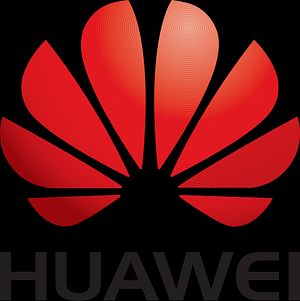Huawei is back in the news as the Chinese telecommunications firm indicated today that it was giving up on the U.S. market. Financial Times quotes Huawei’s executive vice president as saying, “We are not interested in the US market any more.” It’s hardly surprising, as Huawei has struggled to gain a foothold in the United States due to security concerns. The company has been repeatedly blocked from bidding on projects to purchase or partner with U.S. technology and telecommunications firms.
The recent comments confirm hints dropped by Huawei CEO Ren Zhengfei during an interview with French journalists. According to a transcript of the interview published by Chinese media outlet Huxiu, Ren said it was “not worth it” if Huawei began to influence U.S.-China relations as a whole. In response to speculation that the Chinese government might intervene on Huawei’s behalf, Ren pointed out that Huawei’s U.S. sales only totaled $1 billion, a small fraction of total Chinese trade with the United States. Huawei is a private company, Ren said, with no high standing in the government. Instead of battling suspicions in the United States, the company has decided to withdraw from the market.
Huawei has struggled to gain entrance to the United States for years, but the most devastating setback came in October 2012, when a House Intelligence Committee Report encouraged U.S. companies not to partner with Huawei. In a press release from the committee, Chairman Mike Rogers cited “serious concerns about Huawei and ZTE, and their connection to the communist government of China. China is known to be the major perpetrator of cyber espionage, and Huawei and ZTE failed to alleviate serious concerns throughout this important investigation.” The committee’s action was not based on past misconduct, but on the suspicion that Huawei has substantial hidden ties to the Chinese state — suspicions aroused, perhaps, by the fact that Huawei CEO Ren Zhengfei was formerly in the People’s Liberation Army.
This past July, former CIA director Michael Hayden went a step further when he specifically accused Huawei of spying for the Chinese government. Hayden said, at minimum, that Huawei had “shared with the Chinese state intimate and extensive knowledge of the foreign telecommunications systems it is involved with.”
Huawei officials have repeatedly denied the accusation of espionage, and demanded that their accusers show hard proof. In a statement regarding the House Intelligence Committee’s report, Huawei lamented the “predetermined outcome” and cited its “proven track record of network security in the United States and globally.” Huawei accused the report of being motivated by protectionism. Responding to Hayden’s more incendiary accusations, a Huawei spokesman dismissed the comments as “tired, unsubstantiated, defamatory remarks.”
In addition, Huawei mounted an aggressive PR campaign in the United States, hiring lobbyists to boost the company’s image and inviting congressional staffers to visit gleaming Huawei factories during their official trips to China. It didn’t help, and now Huawei has apparently decided to give up its efforts.
Despite Huawei’s efforts, the damage spread. U.S. allies Australia and Canada both recently blocked Huawei from involvement in national telecommunications projects, citing security concerns. When Huawei does score a business deal with a U.S. ally, that also causes a backlash. When a South Korean company signed Huawei as a vendor, U.S. Senators Robert Menendez and Dianne Feinstein wrote a letter to the U.S. Secretary of Defense, Secretary of State, and Director of National Intelligence expressing concern that the deal might affect the “operational effectiveness” of the U.S.-South Korea alliance. The South Korean government acknowledged that concerns exist, but does not intend to investigate the business deal.
Interestingly, Huawei has received a warmer welcome in Europe, where it already has a strong foothold. Though the European Union and China have a rocky trade relationship in many areas, Huawei has done well in Europe. Even the UK, despite its close ties to the United States, plans to let Huawei open a cyber security center in the country. A senior Huawei representative told China Daily that Huawei plans to add 5,500 new jobs to the 7,500 employees currently working for the company in Europe. Huawei also continues to expand in Africa, where it already has a dominant market share In fact, Huawei’s decision to exit the U.S. market may be more demonstrative of Huawei’s strength than its weakness — Huawei’s global business is doing so well that it can continue to expand even without access to the huge U.S. telecommunications market.
Huawei CEO Ren Zhengfei remains optimistic about the company’s future. He believes Huawei’s prowess in the industry will force countries to remove protectionism barriers. Informationization is inevitable, Ren says, and if Huawei’s products are good enough, people will use them despite security concerns. This certainly seems to be true for U.S. tech giants like Cisco and Google, which are still in widespread use despite concerns that the U.S. government has used them as part of its widespread global spying operation.
Ren also hinted that Huawei hasn’t given up on the U.S. permanently, but is rather making a strategic retreat. In a speech to Huawei employees that was leaked to Chinese news outlets, Ren promised that Huawei will make a “glorious” return to the United States. And even since “withdrawing” from the U.S., Huawei has continued to sell its cell phones in the market. “The U.S. can’t say that there are security concerns with cell phones, right?” Ren told French reporters. It’s probably best not to ask, Mr. Ren.

































